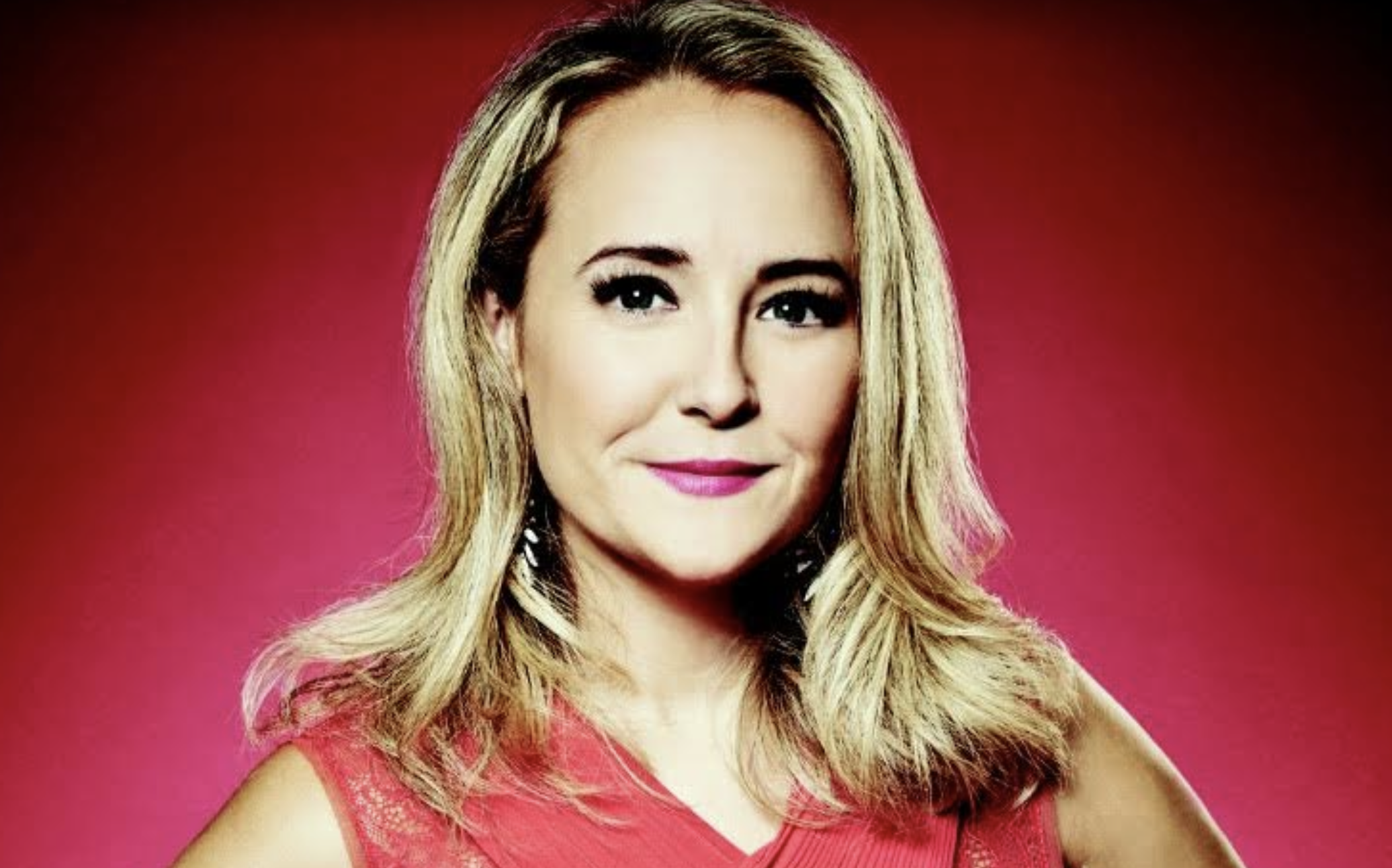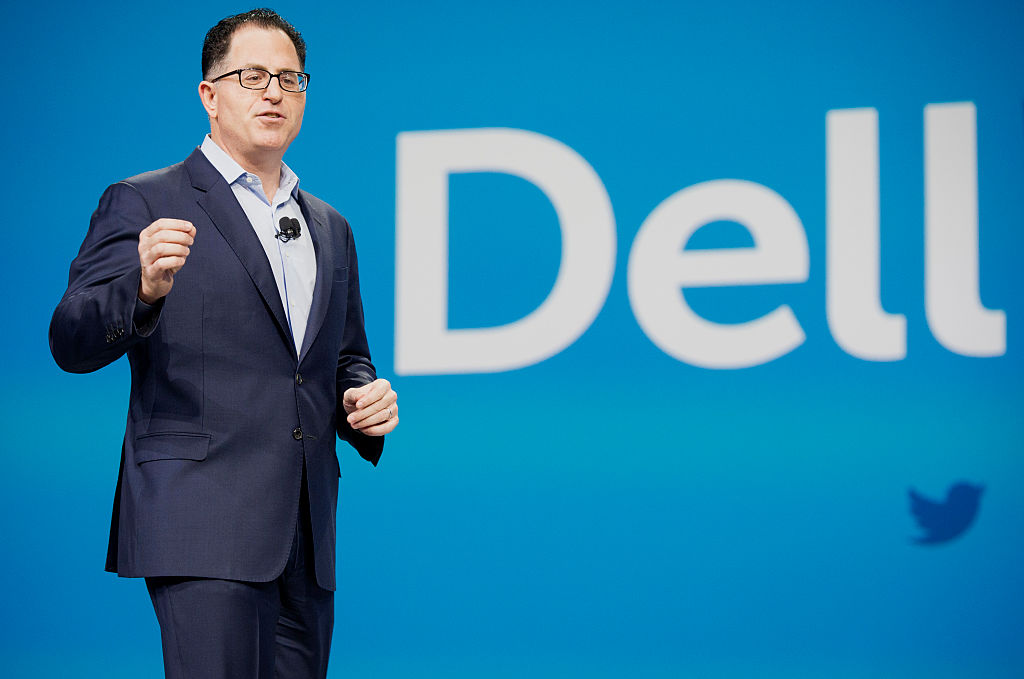This is not a boast, but a warning: I could write a how-to article on almost any topic.
Give me enough time to do some research, and I can put together a reliable step-by-step for building a custom gaming PC, installing a hot water heater or interpreting public health data. But since I’ve never actually done those things, I would encourage you to ignore any advice I have to offer.
Trusted advice comes from experience. That’s why Ron Miller interviewed three entrepreneurs who have each built multiple companies to uncover some essential truths about achieving product-market fit:
- Pouyan Salehi, CEO and co-founder, Scratchpad
- Rami Essaid, CEO and founder, Finmark
- Melonee Wise, CEO and co-founder, Fetch Robotics
The basic tenets presented in Ron’s story will resonate with anyone who’s launched a startup.
Alex Wilhelm was particularly prolific this morning: For The Exchange, he studied UiPath’s 2020 quarterly results to get a clearer picture of its first S-1/A filing. Is the “somewhat slack news regarding UiPath’s potential IPO valuation” a harbinger of things to come?
Full Extra Crunch articles are only available to members.
Use discount code ECFriday to save 20% off a one- or two-year subscription.
In a follow-up, he recapped news from the public debuts of Coinbase, UiPath, Zenvia, AppLovin and Grab, all of which “adds up to a somewhat muddled picture of the current IPO market.” It feels like we’re in a turbulent window, but it’s also possible that we’re in the calm after the storm, he suggests.
Final note: I asked TechCrunch graphic designer/illustrator Bryce Durbin to create an image to accompany this primer on raising a Series A round. He didn’t just exceed my expectations — it’s my favorite TechCrunch illustration ever. Thanks, Bryce!
I hope you got something out of reading Extra Crunch this week. Have a great weekend.
Walter Thompson
Senior Editor, TechCrunch
@yourprotagonist
Building the right team for a billion-dollar startup

Image Credits: Bryce Durbin/TechCrunch
From building out Facebook’s first office in Austin to putting together most of Quora’s team, Bain Capital Ventures managing director Sarah Smith has done a bit of everything when it comes to hiring.
At TechCrunch Early Stage, she spoke about how to ensure the critical early hires are the right ones to grow a business. As an investor, Smith has a broad view into the problems companies face as they search for the right candidates to spur organizational success.
She touched on a number of issues, such as who to hire and when, when to fire and how to ensure diversity from the earliest days.
So you want to raise a Series A

Image Credits: Bryce Durbin/TechCrunch
During a seed-funding round, a founder needs to convince a venture capital investor on a vision. But during a Series A fundraise, napkin-stage ideas don’t make the cut — a founder needs product progress, numbers and revenue (or at least a plan to eventually generate some).
In many ways, the stakes are higher for a Series A — and Bucky Moore, a partner at Kleiner Perkins, joined TechCrunch Early Stage last week to give founders tactical advice on the process of raising one.
Moore spoke about storytelling over semantics, pricing and where his firm sees itself “raising the bar” for startups.
With the right tools, predicting startup revenue is possible
For a long time, “revenue” seemed to be a taboo word in the startup world. Fortunately, things have changed with the rise of SaaS and alternative funding sources such as revenue-based investing VCs.
Still, revenue modeling remains a challenge for founders. How do you predict earnings when you’re still figuring it out?
How we dodged risks and raised millions for our open-source machine learning startup

Image Credits: erhui1979 / Getty Images
If you have a great idea within the open-core framework, expect your risks to be much lower than with a traditional business structure.
Clearly communicate this fact to venture capitalists for the best chance at securing the seed funding your organization needs.
But it takes more: Boasting a strong community around an emerging open-source product essentially serves as an “introduction letter” to venture capitalists. It highlights the founders’ ability to successfully execute their vision, as well as the mission to bring their product to a commercial reality.
Additionally, the iterative nature of open-source projects leads to fostering a sense of teamwork between the founders, their team and investors and stakeholders.
Founder and investor Melissa Bradley outlines how to nail your virtual pitch meeting

Image Credits: Ureeka
Melissa Bradley is the co-founder of a startup called Ureeka, an investor at 1863 Ventures and a professor at Georgetown’s business school. So it’s not an understatement to say that she understands the fundraising process from every angle.
She both invested and fundraised for her own startup during this last year, where the landscape has shifted drastically. At TechCrunch Early Stage, she led a session on how to nail your virtual pitch meeting.
Bradley covered how to allocate your time during the meeting, how to prepare, how to close out the meetings with a clear list of action items and what to avoid.
Scale CEO Alex Wang and Accel’s Dan Levine explain why sometimes unconventional VC deals are best

Image Credits: Eric Millette / Scale AI
Scale CEO and co-founder Alex Wang credits its success since founding — which includes raising over $277 million and achieving breakeven status in terms of revenue — to early support from investors, including Accel’s Dan Levine.
Accel haș participated in four of Scale’s financing rounds, and Levine wrote one of the company’s very first checks. So on this past week’s episode of Extra Crunch Live, we spoke with Levine and Wang about how that first deal came together, and what their working relationship has been like in the years since.
Ride-hailing’s profitability promise is in its final countdown
Let’s parse Uber’s latest, vet its profit promise, consider its rivals and their performance, then ask ourselves if the great ride-hailing and food-delivery booms will ever make back the money they cost to scale.
UiPath’s first IPO pricing could be a warning to late-stage investors

Image Credits: Noam Galai/Getty Images
For UiPath, its initial IPO price interval is a disappointment, though the company could see an upward revision in its valuation before it does sell shares and begins to trade.
But more to the point, the company’s private-market valuation bump followed by a quick public-market correction stands out as a counter-example to something that we’ve seen so frequently in recent months.
Is UiPath’s first IPO price interval another indicator that the IPO market is cooling?
How to choose and deploy industry-specific AI models

Image Credits: alexsl / Getty Images
As artificial intelligence becomes more advanced, previously cutting-edge — but generic — AI models are becoming commonplace, such as Google Cloud’s Vision AI or Amazon Rekognition.
While effective in some use cases, these solutions do not suit industry-specific needs right out of the box. Organizations that seek the most accurate results from their AI projects will simply have to turn to industry-specific models.
Any team looking to expand its AI capabilities should first apply its data and use cases to a generic model and assess the results.
Let’s dive into each of these approaches and how businesses can decide which one works for their distinct circumstances.
Atomico’s talent partners share 6 tips for early-stage people ops success

Image Credits: Atomico
In the earliest stages of building a startup, it can be hard to justify focusing on anything other than creating a great product or service and meeting the needs of customers or users.
However, there are still a number of surefire measures that any early-stage company can and should put in place to achieve “people ops” success as they begin scaling, according to venture capital firm Atomico‘s talent partners, Caro Chayot and Dan Hynes.
Long story short: You need to recruit for what you need, but you also need to think about what is coming down the line.
5 questions about Grab’s epic SPAC investor deck

Image Credits: Roslan Rahman/Getty Images
Southeast Asian superapp Grab is going public via a SPAC.
Grab, which provides ride-hailing, payments and food delivery, will trade under the ticker symbol “GRAB” on the Nasdaq exchange when the combination is complete.
Let’s walk through several key points from Grab’s SPAC investor deck, including growth, segment profitability, aggregate costs and COVID-19, among other factors.
Expect an even hotter AI venture capital market in the wake of the Microsoft-Nuance deal
Microsoft’s huge purchase of health tech AI company Nuance led the technology news cycle this week. The $19.7 billion transaction is Microsoft’s second-largest to date, only beaten by its purchase of LinkedIn some years ago.
For the AI space, the sale is a coup. Nuance was already a public company, but to see Microsoft offer a firm premium over its public-market value demonstrates the value that AI technology can have to wealthy companies. For startups working in the AI space, the Nuance deal is good news; the value of AI revenue was repriced by the acquisition’s announcement — and for the better.
In light of the megadeal, The Exchange dug into the AI venture capital market. What’s happening on the startup side of the coin in the artificial intelligence and machine learning (AI/ML) space?
What’s fueling hydrogen tech?

Image Credits: Bryce Durbin
When the word “hydrogen” is uttered today, the average non-insider’s mind likely gravitates toward transportation — cars, buses, maybe trains or 18-wheelers, all powered by the gas.
But hydrogen is, and does, a lot of things, and a better understanding of its other roles — and challenges within those roles — is necessary to its success in transportation.
Hydrogen is now capturing the attention of governments and private sector players, fueled by new tech, global green energy legislation and post-pandemic “green recovery” schemes.
5 product lessons to learn before you write a line of code

Image Credits: LaylaBird / Getty Images
Before a startup can achieve product-market fit, founders must first listen to their customers, build what they require and fashion a business plan that makes the whole enterprise worthwhile.
The numbers will tell the true story, but when it happens, you’ll feel it in your bones because sales will be good, customers will be happy and revenue will be growing.
Reaching that tipping point can be a slog, especially for first-time founders. To uncover some basic truths about building products, we spoke to three entrepreneurs who have each built more than one company.
Inside the US’ epic first-quarter venture capital results
In broad strokes, the United States had a crushing venture capital start to the new year, pandemic be damned.
That is especially true when we consider 2020’s full-year figures. Last year, venture capitalists deployed some $166 billion into U.S.-based startups across 12,546 rounds. In contrast, if the first quarter’s pace was maintained during the rest of 2021, the United States would see around 16,000 rounds worth around $280 billion.
Of course, we cannot see the future, so those projections are merely shared to underscore how active the first quarter proved to be.
Dear Sophie: How can I get an H-1B without the lottery?

Image Credits: Bryce Durbin/TechCrunch
Dear Sophie:
For the past few years, our company has put very promising candidates into the annual H-1B lottery. None of them have been selected — and none of them meet the requirements for other work visas like an O-1A.
We lost out again in this year’s H-1B lottery. Are there any other ways we can obtain H-1Bs for our team members?
— Soldiering on in Sunnyvale
Alexa von Tobel outlines how founders should manage personal finances

Image Credits: Alexa von Tobel
Few people are more knowledgeable on the topic of how founders should manage their finances than Alexa von Tobel.
She is a certified financial planner, started her own company in the midst of the recession (which happened to be a wildly successful personal finance startup that sold for hundreds of millions of dollars) and is now a VC who invests and advises founders.
At Early Stage 2021, she gave a presentation on how founders should think about managing their own wealth. Startup founders can often put all their money into their venture and end up paying more attention to the finances of their company than their own bank account.
Von Tobel outlined the various steps you can take to stay out of debt, build credit and accumulate wealth through investments to ensure you have financial peace of mind as you take on the most stressful venture of your life: Starting a company.
How to pivot your startup, save cash and maintain trust with investors and customers

Image Credits: Olive
A few years ago, founder Sean Lane thought he’d achieved product-market fit.
Speaking to attendees at TechCrunch’s Early Stage virtual event, Lane said Queue, a secure digital check-in tablet for hospital waiting rooms that reduced wait times by uniting and correcting electronic medical records, was “selling like hotcakes.” But once Lane realized it would only ever address one piece of a much bigger market opportunity, he sold off the product, laid off two-thirds of the people affiliated with it and redirected the employees who were left.
Lane explained that what he really wanted to build is what his company — since renamed Olive — has now become, a robotic process automation (RPA) company that takes on hospital workers’ most tedious tasks so nurses and physicians can spend more time with patients.
Building customer-first relationships in a privacy-first world is critical
In business today, many believe that consumer privacy and business results are mutually exclusive — to excel in one area is to lack in the other. Consumer privacy is seen by many in the technology industry as an area to be managed.
But the truth is that the companies that champion privacy will be better-positioned to win in all areas. This is especially true as the digital industry continues to undergo tectonic shifts in privacy — both in government regulation and browser updates.
For startups choosing a platform, a decision looms: Build or buy?
Founders shouldn’t be worried about starting companies that rely on other platforms.
Platforms exist to help startups get to users and customers faster and should be used as a means to an end, but everyone must get their piece.
Coinbase’s direct listing alters the landscape for fintech and crypto startups
Coinbase’s direct listing was a massive finance, startup and cryptocurrency event, and the transaction’s effects will be felt for some time in the public market, but also among the startups and capital that comprise the private market.
In the buildup to Coinbase’s flotation — and we’d argue especially after it released its blockbuster Q1 2021 results — there was a general expectation that the unicorn’s direct listing would provide a halo effect for other startups in the space.
The widely held perspective raised two questions: Will the success of Coinbase’s direct listing bolster private investment in crypto-focused startups, and will that success help other areas of financially focused startup work garner more investor attention?
Billion-dollar B2B: Cloud-first enterprise tech behemoths have massive potential
The “billion-dollar B2B” paradigm refers to the forces shaping a new class of cloud-first, enterprise-tech behemoths with the potential to reach $1 billion in ARR — and achieve market capitalizations in excess of $50 billion or even $100 billion.
One of the biggest factors driving billion-dollar B2Bs is a simple but important shift in how organizations buy enterprise technology today.
How startups can ensure CCPA and GDPR compliance in 2021
Data is the most valuable asset for any business in 2021. If your business is online and collecting customer personal information, your business is dealing in data, which means data privacy compliance regulations will apply to everyone — no matter the company’s size.
Small startups might not think the world’s strictest data privacy laws — the California Consumer Privacy Act (CCPA) and Europe’s General Data Protection Regulation (GDPR) — apply to them, but it’s important to enact best data management practices before a legal situation arises.
Should Dell have pursued a more aggressive debt-reduction move with VMware?

Image Credits: Bloomberg / Getty Images
When Dell announced it was spinning out VMware, the move itself wasn’t surprising; there had been public speculation for some time.
But Dell could have gone a number of ways in this deal, despite its choice to spin VMware out as a separate company with a constituent dividend instead of an outright sale.
It seems Dell hopes to have its cake and eat it too with this deal: It generates a large slug of cash to use for personal debt relief while securing a five-year commercial deal that should keep the two companies closely aligned.
What we all missed in UiPath’s latest IPO filing
Robotic process automation platform UiPath filed its first S-1/A this week, setting an initial price range for its shares. The numbers were impressive, if slightly disappointing because what UiPath indicated in terms of its potential IPO value was a lower valuation than it earned during its final private fundraising.
Here at The Exchange, we wondered if the somewhat slack news regarding UiPath’s potential IPO valuation was a warning to late-stage investors.
But in good news for UiPath shareholders, most everyone — ourselves included! — who discussed the company’s price range didn’t dig into the fact that the company first disclosed quarterly results to the same S-1/A filing that included its IPO valuation interval. And those numbers are very interesting, so much so that The Exchange is now generally expecting UiPath to target a higher price interval before it debuts.
But let’s dig into the company’s quarterly results to get a clearer picture of UiPath.
The IPO market is sending us mixed messages
If you only stayed up to date with the Coinbase direct listing this week, you’re forgiven. It was, after all, one heck of a flotation.
But underneath the cryptocurrency exchange’s public debut, other IPO news that matters did happen this week. And the news adds up to a somewhat muddled picture of the current IPO market.
To cap off the week, let’s run through IPO news from UiPath, Coinbase, Grab, AppLovin and Zenvia. The aggregate dataset should help you form your own perspective about where today’s IPO markets really are in terms of warmth for the often unprofitable unicorns of the world.

https://ift.tt/32zpjjn Extra Crunch roundup: UiPath’s IPO filing, predicting revenue, how to pivot properly, much more https://ift.tt/3x0E50k











































